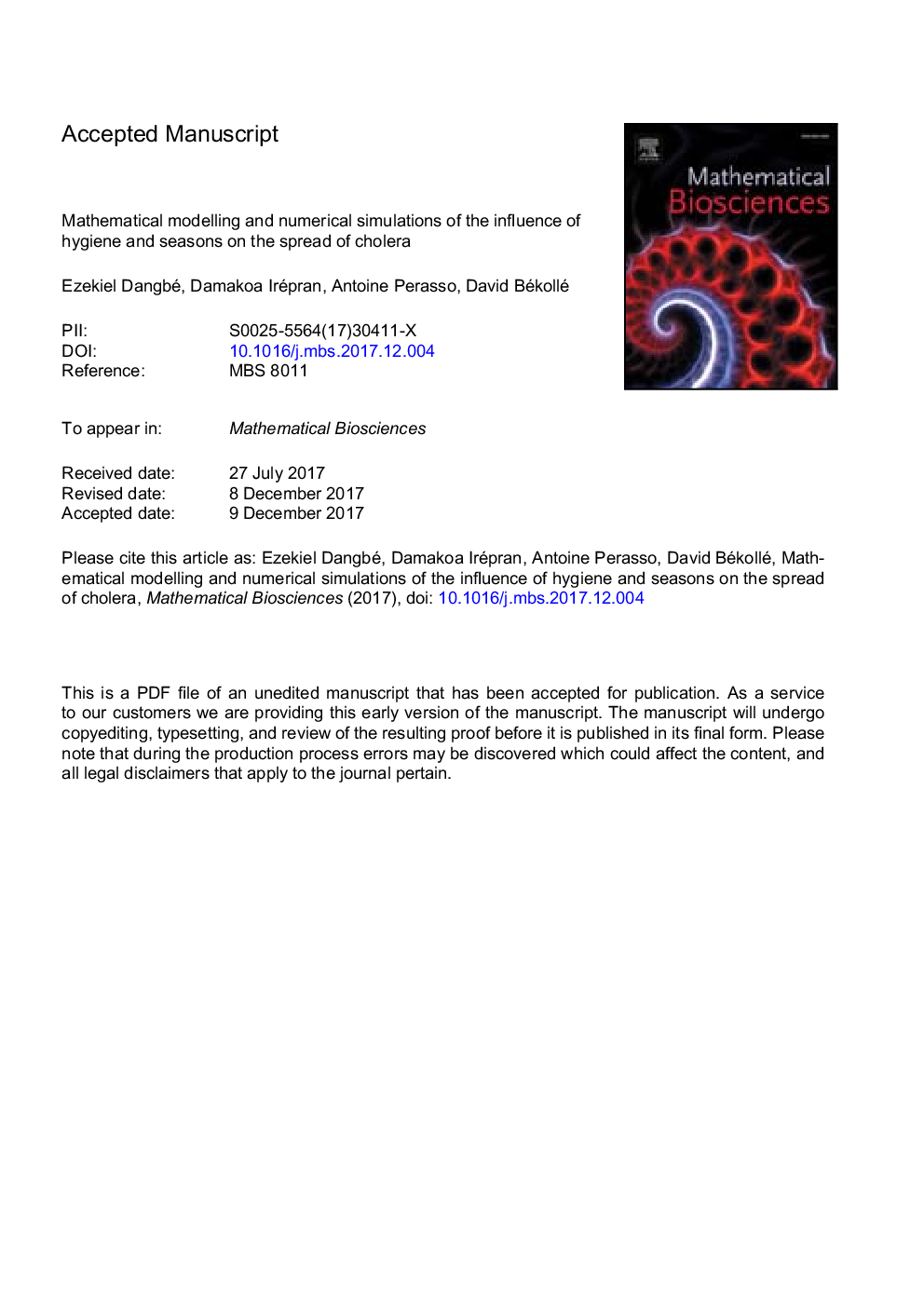| Article ID | Journal | Published Year | Pages | File Type |
|---|---|---|---|---|
| 8877081 | Mathematical Biosciences | 2018 | 30 Pages |
Abstract
Cholera is a bacterial disease, its spread is strongly influenced by environmental factors and some socio-economic factors such as hygiene standards and nutrition of the population. This paper is devoted to the modelling of the impact of climatic factors and human behaviour on the spread of cholera. The mathematical modelling incorporates the direct transmission and the indirect transmission due to environmental knowledge. Taking into account the effect of the intra-annual variation of climatic factors on the transmission of cholera, a non-autonomous ordinary differential equations is proposed to describe the dynamics of the transmission of cholera. When the intra-annual variation of climate is not incorporated into the model, the latter becomes autonomous. The basic reproductive number is calculated and the stabilities of equilibria are investigated. In the non-autonomous case, the disease extinction and uniform persistence of disease are investigated. The results suggest that the transmission and spread of cholera can be affected by climatic factors, the proportion of the undernourished individuals and the proportion of people who respect the hygiene standards. Finally, some numerical simulations are proposed using the parameters values of climatic factors and socio-economic factors of some localities situated in Lake Chad border between Chad, Cameroon and Nigeria.
Related Topics
Life Sciences
Agricultural and Biological Sciences
Agricultural and Biological Sciences (General)
Authors
Ezekiel Dangbé, Damakoa Irépran, Antoine Perasso, David Békollé,
